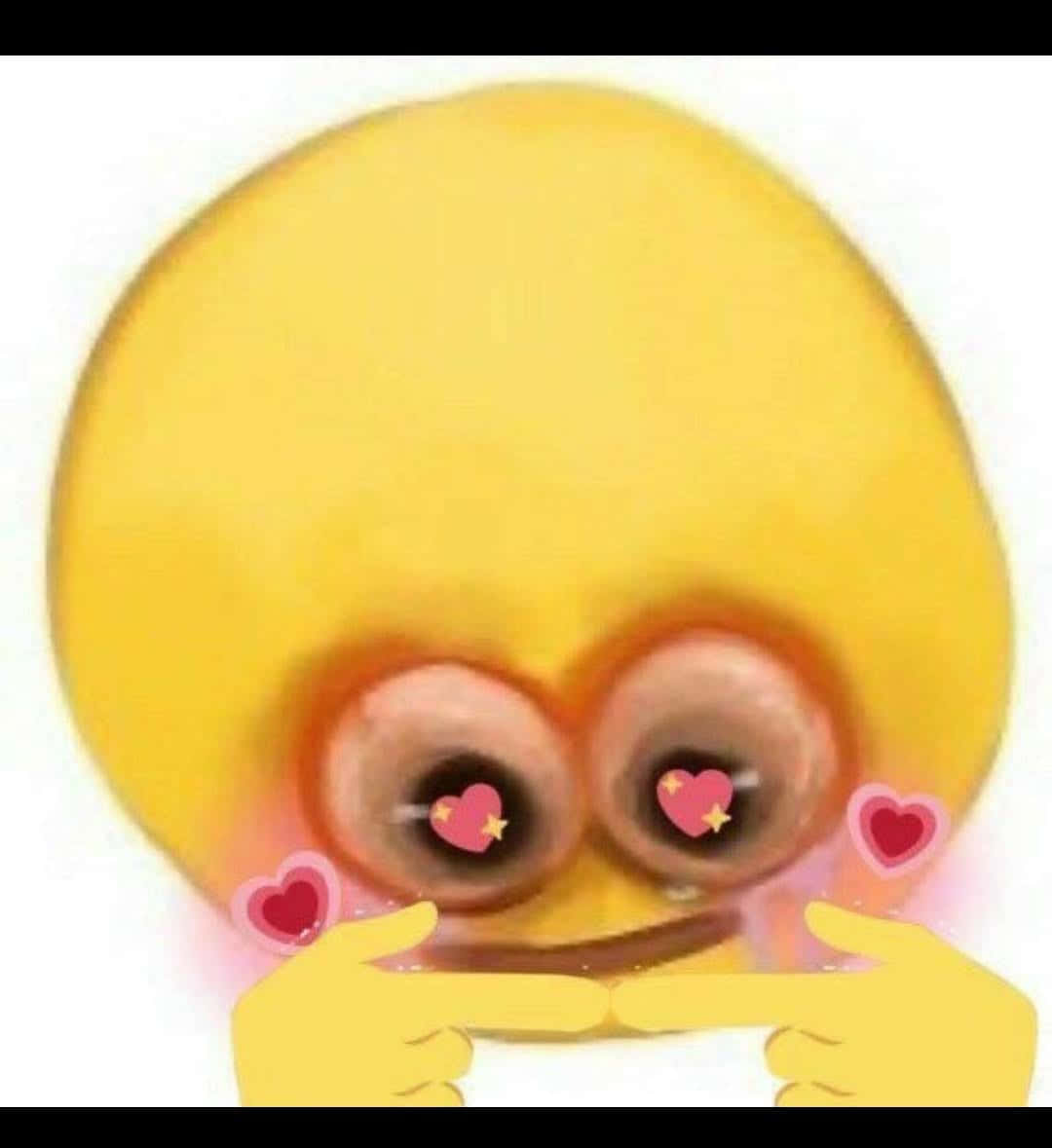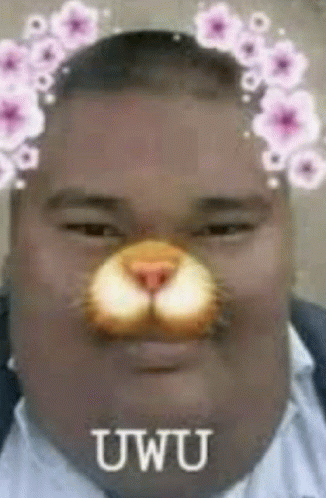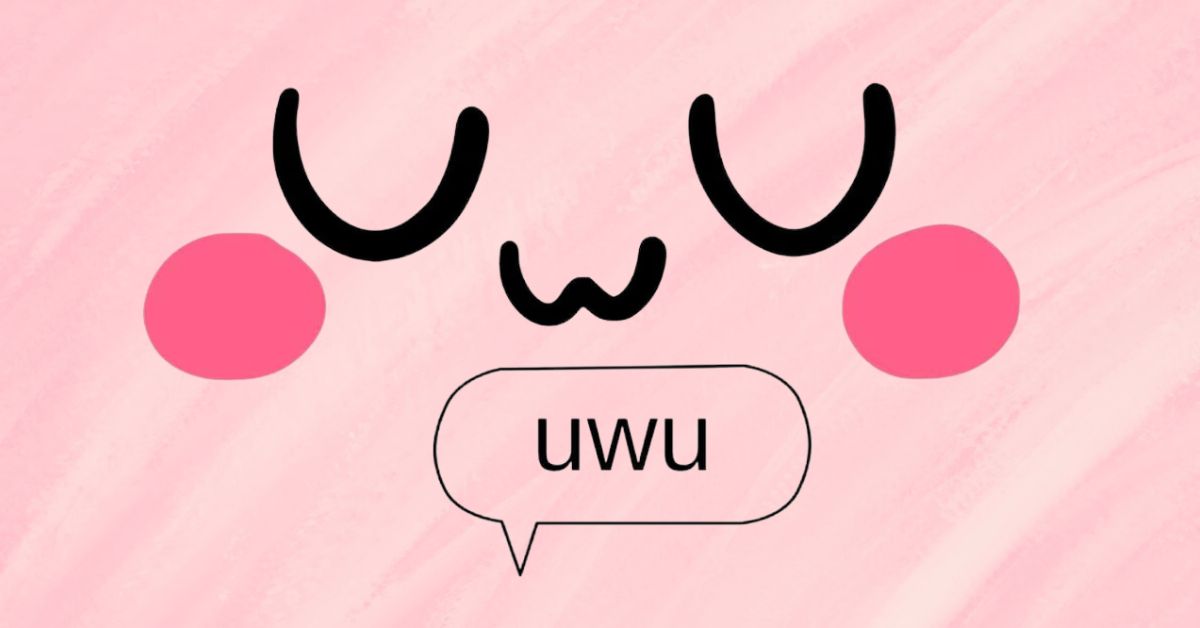When you come across the phrase "uwu caterpillar," it might, you know, spark a little curiosity. This isn't about some new kind of garden visitor, but rather a playful way to talk about feelings and expressions that have really caught on in our online spaces. It’s about that gentle, soft feeling, or a burst of pure delight, wrapped up in a creature that brings to mind quiet growth and simple charm. We're going to explore what makes "uwu" such a special part of how we communicate, and how it connects to something as unassuming as a little caterpillar, in a way.
The term "uwu" itself has, you see, a rather interesting background, taking its beginnings from the visual stories we often see in manga and anime. It’s a simple set of letters that, when put together, somehow manages to get across a whole lot of tender emotion or even, just a little, a sense of immense pleasure. It’s a way of showing you feel something sweet or are touched by something truly lovely, without needing a lot of extra words.
So, when we bring in the idea of a "uwu caterpillar," it’s like giving this tender feeling a little, soft body. Think of a caterpillar: it’s often small, perhaps a bit shy, and it moves with a gentle sort of purpose. This pairing helps us picture that soft, warm sentiment as something tangible, something that moves at its own pace and brings a quiet sort of happiness to those who notice it. It’s a symbol, you could say, of the kind of mild, happy interactions we hope for online, something that, honestly, feels quite nice to think about.
Table of Contents
- What Does "uwu" Really Mean for the uwu Caterpillar?
- Where Did the "uwu" Feeling Come From?
- How Do We Show Affection with the uwu Caterpillar?
- Are All Cute Internet Expressions the Same for the uwu Caterpillar?
- The Journey of Online Language - More Than Just Words
- Understanding Cultural Differences in Digital Talk
- When Internet Speak Goes Wrong
- Embracing the Gentle Side of the uwu Caterpillar
What Does "uwu" Really Mean for the uwu Caterpillar?
The expression "uwu" carries, you know, a few different ideas, each one adding to its special appeal. At its heart, it often points to a feeling of softness, a sense of mildness, or a deep sense of contentment. It’s the kind of happy feeling you get when you see something truly delightful, something that makes your heart feel, well, just a little bit warm. It can also stand for a very strong sense of joy, that kind of happiness that makes you want to, perhaps, squish your cheeks together a bit. It’s a direct way to show a sweet reaction to something that captures your attention and fills you with a gentle sort of pleasure.
This simple combination of letters acts as a kind of shorthand, a quick visual cue that lets others know how you’re feeling without needing to type out a whole sentence. It’s incredibly handy when you want to express yourself with just a little picture-like symbol. You might use it when you see a cute animal video, or when someone says something particularly kind. It’s a way of nodding along with a feeling, of saying, "Yes, that's it exactly," but with a soft smile instead of words. In some respects, it’s a quiet cheer, a gentle acknowledgment of something good.
When we think about the "uwu caterpillar," we are, in a way, giving this feeling a form. Imagine a small creature, perhaps moving slowly and peacefully, that just naturally brings out these soft, happy feelings in you. The "uwu caterpillar" becomes a symbol for anything that makes you feel that gentle warmth, that quiet joy, or that mild delight. It could be a small kindness, a moment of calm, or just a tiny bit of beauty that you notice in your day. It’s about finding the gentle, heartwarming aspects of life and, you know, acknowledging them with a soft, inner smile. This makes the "uwu caterpillar" a sort of quiet ambassador for all things gentle and sweet in our world, especially the online one.
Where Did the "uwu" Feeling Come From?
The roots of the "uwu" expression, it’s true, can be found in the lively world of Japanese comic books, known as manga, and animated shows, called anime. These forms of visual storytelling often use a lot of expressive faces and body language to show what characters are feeling. So, you might see a character with wide, innocent eyes and a tiny, puckered mouth, and that visual, you know, just naturally turns into the "uwu" shape. It's a direct translation of a visual cue into a text-based symbol.
This visual shorthand then, quite naturally, made its way into online chats and messages. People who enjoyed manga and anime started using "uwu" to express those same tender or overly sweet emotions they saw in their favorite stories. It became a quick, easy way to show that you were feeling soft, a bit shy, or incredibly happy, just like a character in a cartoon might. It’s actually pretty neat how a simple visual can become such a widely understood way of communicating a feeling, especially when it comes to expressing something like the gentle presence of an "uwu caterpillar."
The way these kinds of expressions spread is, well, pretty fascinating. Someone uses it, then a friend sees it and starts using it, and before you know it, it's part of how a whole community talks. This is how internet language often grows, building on shared experiences and common interests. "uwu," in this way, became a part of the informal talk that people use online, especially among those who appreciate cute or sweet things. It’s a little piece of culture that, you know, just keeps moving and changing as more people pick it up and make it their own.
How Do We Show Affection with the uwu Caterpillar?
Showing affection or a gentle sort of happiness with "uwu" is, really, quite simple. It’s a way to put across a feeling without needing to craft a long sentence or find just the right words. When you use "uwu," you’re essentially giving a little, quiet nod of approval, or showing that something has made you feel soft and warm inside. It’s a direct line from your feeling to the person you’re talking to, making communication, you know, a bit more heartfelt and immediate.
The power of emoticons, these little picture-like symbols, is that they can carry a lot of meaning in a very small space. "uwu" is a perfect example of this. It doesn’t just mean "happy"; it means a specific kind of happy, one that’s gentle, perhaps a little shy, and very sweet. It’s the kind of feeling you might get when you see something small and charming, like, say, a tiny "uwu caterpillar" slowly making its way across a leaf. The simplicity of the symbol allows for a direct expression of these tender sentiments, cutting through the need for complex phrasing.
Using "uwu" helps to build a sense of warmth and connection in online conversations. It signals to others that you’re approaching the interaction with a soft heart, that you appreciate the cute or gentle aspects of what’s being shared. It’s an invitation, in a way, for others to respond in kind, fostering a more pleasant and friendly atmosphere. This kind of communication, you know, really helps to make online spaces feel more human and less, well, just like a bunch of words on a screen. It’s about sharing a feeling, a soft, quiet moment, much like the gentle presence of an "uwu caterpillar" might offer a moment of calm.
Are All Cute Internet Expressions the Same for the uwu Caterpillar?
When we look at how people express cuteness or a gentle smile online, it’s actually pretty interesting to see the differences across various parts of the world. For example, in Chinese online communities, you might often come across "QAQ" to show something cute or sad, and "OwO" when someone is smiling or feeling surprised. These are, you know, quite popular ways to get across those kinds of feelings. They serve a similar purpose to "uwu" in some respects, but they have their own distinct flavors and common uses.
On the other hand, in many Western online spaces, "UWU" is what you’ll typically see used for that particular kind of gentle, soft, or very happy feeling. While all these symbols aim to show a kind of pleasant emotion, the specific shape and common use can vary quite a bit depending on where you are and what language community you’re a part of. It’s like how different flowers might grow in different gardens, yet they all bring beauty. Each expression, you know, has its own little story and its own common situations where it just feels right to use.
This shows us that even though the internet connects us all, the way we talk and express ourselves online still has deep roots in our local cultures and languages. A simple emoticon, like the ones we’ve talked about, can carry different shades of meaning or be used in slightly different ways depending on the community. It’s a reminder that language, even digital language, is a living thing, always changing and adapting to the people who use it. So, while they might all be about showing a pleasant feeling, the specific charm of each, like the unique appeal of an "uwu caterpillar," really does stand out.
The Journey of Online Language - More Than Just Words
The way we talk online, you know, is much more than just putting words together. It’s a constantly moving thing, shaped by platforms and the people who gather there. Take Zhihu, for example, a well-known online place in China that started in 2011. Its main goal is to help people share what they know, what they’ve been through, and what they think, so others can find answers. This kind of platform, where people are actively sharing and discussing, becomes a really important spot for new ways of talking to show up and grow.
On sites like Zhihu, and countless others across the internet, the way we express ourselves changes and gets richer over time. People pick up new phrases, new ways to show feelings, and new symbols. These aren't just random things; they often come from shared jokes, popular culture, or just the need to get a certain feeling across quickly and clearly. It’s like a big, ongoing conversation where everyone adds a little bit to the language we all use. This constant sharing, you know, helps shape how we communicate digitally, making it more personal and, well, often more fun.
The very act of sharing knowledge and personal experiences on these platforms, as a matter of fact, helps to build a common understanding of these new language bits. When someone explains what "uwu" means, or how "QAQ" is used, it spreads that knowledge through the community. This collective effort in making sense of new expressions is what truly gives them their meaning and helps them become a part of our daily online talk. It’s a pretty amazing process, really, seeing how language evolves right before our eyes, all thanks to people just, you know, chatting and sharing.
Understanding Cultural Differences in Digital Talk
It’s quite fascinating, actually, how different parts of the world use online expressions in their own ways. What might be a common way to show something cute or a gentle feeling in one place could be completely unknown or used differently somewhere else. This isn't just about language barriers; it’s about how cultural backgrounds shape the little symbols and phrases we use every day online. The internet might seem like one big place, but it's really made up of many smaller communities, each with its own ways of talking.
Think about why "QAQ" caught on in Chinese online spaces for sadness or cuteness, while "uwu" became the go-to for gentle feelings in Western ones. These differences often come from the specific popular culture, the kinds of humor, and the general ways people tend to express emotions in those regions. It’s not just about what sounds good, but what feels natural and familiar within that particular cultural setting. So, a symbol that feels just right for showing a sweet, gentle "uwu caterpillar" feeling in one culture might not quite fit in another.
Understanding these differences is, you know, pretty important for clear communication online. It helps us appreciate the richness of global internet culture and avoids misunderstandings. When you know that certain expressions are more common or mean something slightly different in another culture, you can communicate with more respect and clarity. It’s about recognizing that even in the seemingly simple world of emoticons and internet slang, there's a whole lot of cultural background at play, shaping how we connect with each other, more or less, across the digital divide.
When Internet Speak Goes Wrong
While much of online language, like "uwu," aims to bring people together with gentle feelings, it's really important to remember that not all internet talk is harmless. There are, sadly, some expressions that carry a very negative weight, and it’s good to be aware of them. Take the phrase "ching chang chong," for instance. This is, you know, a very old and hurtful way that some people in Western countries have used to make fun of Chinese people. It’s a very mean-spirited imitation of how the Chinese language sounds to someone who doesn't speak it.
This particular phrase, as a matter of fact, has a long history of being used to mock and belittle individuals of Chinese background. It’s not just a silly sound; it’s a tool of prejudice that has caused real pain and discomfort for many. Its origin lies in a lack of understanding and, frankly, a desire to put down others based on their heritage and language. This serves as a stark reminder that while we celebrate the fun and gentle parts of internet culture, like the soft feelings of an "uwu caterpillar," we also have a duty to be thoughtful and kind in our words.
Understanding where such harmful phrases come from and why they are offensive is, honestly, a big step towards creating a more respectful online space for everyone. It highlights the serious responsibility that comes with using language, even in casual online settings. Just as "uwu" can spread warmth and happiness,



Author Details:
- Name : Ally Bartell
- Username : konopelski.kylee
- Email : garth.adams@swaniawski.com
- Birthdate : 1997-09-20
- Address : 888 Afton Station Suite 417 Port Denis, OK 60716-3086
- Phone : 478-887-4457
- Company : Kuhn, Huel and Rutherford
- Job : Telemarketer
- Bio : Consequatur aliquid dolore eligendi asperiores. Quia modi magni magnam ut quam. Autem laudantium illo eaque. Adipisci blanditiis est sunt nihil asperiores id.
Social Media
Tiktok:
- url : https://tiktok.com/@clueilwitz
- username : clueilwitz
- bio : Et aut temporibus rerum qui labore consequatur est.
- followers : 387
- following : 817
Linkedin:
- url : https://linkedin.com/in/coty3233
- username : coty3233
- bio : Rem tempora ut ut a.
- followers : 1424
- following : 1154
Instagram:
- url : https://instagram.com/coty.lueilwitz
- username : coty.lueilwitz
- bio : Quam rerum suscipit quidem nostrum quod occaecati. Rerum est sed tempore quas quia alias.
- followers : 978
- following : 344
Facebook:
- url : https://facebook.com/coty.lueilwitz
- username : coty.lueilwitz
- bio : Non explicabo eos qui nisi delectus.
- followers : 4156
- following : 147
